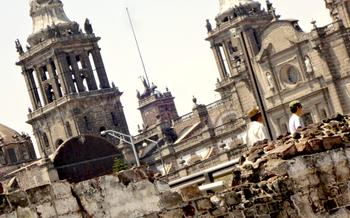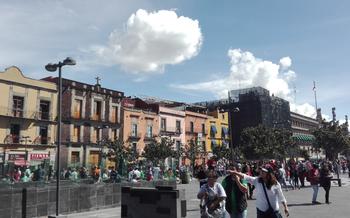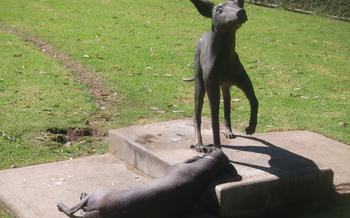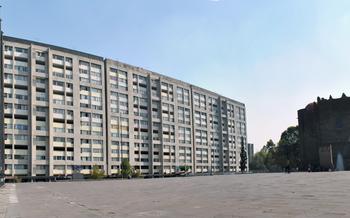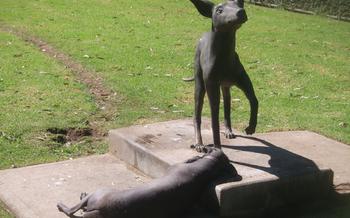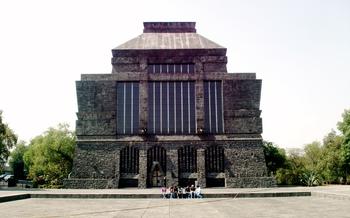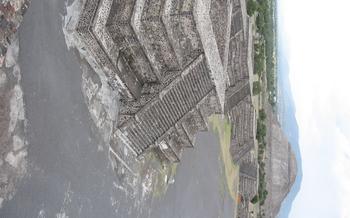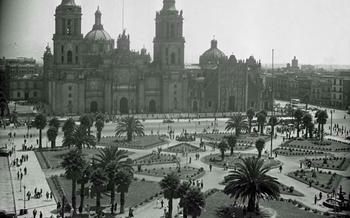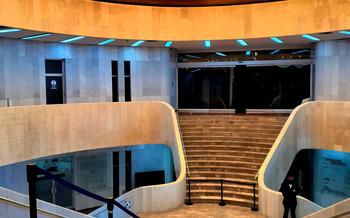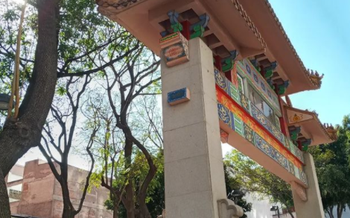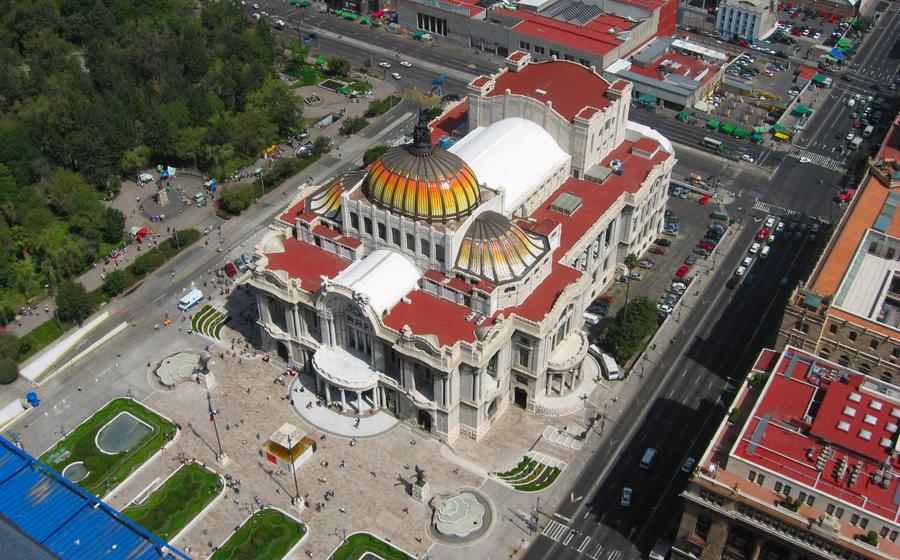
Museo de la Autonomía Universitaria
- The Museo de la Autonomía Universitaria: A Historical and Cultural Gem
- The Mural of Autonomy: A Masterpiece by Diego Rivera
- Navigating the Museo de la Autonomía Universitaria
- Unveiling the Museum's Collection
- The Museum's Educational Mandate
- The Museum's Cultural Significance
- The Museum's Contribution to the Community
- The Museum's Recognition and Awards
- The Museum's Impact on Higher Education
- The Museum's Role in Preserving Cultural Heritage
- The Museum's Engagement with Contemporary Issues
- The Museum's Collaborations with Other Institutions
- The Museum's Future Plans and Projects
- Insider Tip: Exploring the Neighborhood
The Museo de la Autonomía Universitaria: A Historical and Cultural Gem
Nestled in the heart of Mexico City, the Museo de la Autonomía Universitaria (Museum of University Autonomy) stands as a testament to the rich history and vibrant culture of Mexico. Established in 1980, the museum is dedicated to preserving and showcasing the struggle for university autonomy, a crucial chapter in Mexico's educational and political landscape.
Collection highlights:
- The Mural of Autonomy: A monumental masterpiece by renowned Mexican artist Diego Rivera, depicting the history of the university and the student movement of 196
- Historical Documents: Original documents, photographs, and artifacts chronicling the events of the student movement, providing a glimpse into this transformative period.
- Interactive Exhibits: Engaging and interactive displays that allow visitors to explore the museum's collection in a dynamic and immersive manner.
- Temporary Exhibitions: The museum regularly hosts temporary exhibitions featuring the works of contemporary artists, shedding light on diverse social and cultural issues.
Educational and cultural programs:
- Workshops and Seminars: The museum offers a range of educational workshops and seminars on topics related to Mexican history, art, and culture, fostering critical thinking and dialogue.
- Guided Tours: Knowledgeable guides lead visitors through the museum's collection, providing insights into the historical context and significance of the exhibits.
- Public Lectures: The museum hosts regular public lectures by renowned scholars, artists, and activists, promoting intellectual discourse and engagement with contemporary issues.
- Film Screenings and Performances: The museum's auditorium hosts film screenings, theatrical performances, and musical concerts, creating a dynamic space for cultural expression and exchange.
The Mural of Autonomy: A Masterpiece by Diego Rivera
The Museo de la Autonomía Universitaria is home to a stunning mural by renowned Mexican artist Diego Rivera. Entitled "The Mural of Autonomy," this masterpiece captures the essence of the student movement of 1968 and the struggle for university autonomy. Rivera's distinct artistic style, characterized by bold colors, strong lines, and a blend of realism and symbolism, brings the mural to life.
The mural depicts a dynamic scene, with students, professors, and workers united in their fight for autonomy. Rivera masterfully weaves historical figures and symbols into the narrative, creating a powerful visual representation of the events of 196The mural's symbolism extends beyond the specific events it portrays, addressing broader themes of social justice, freedom of expression, and the importance of education.
In recent years, the mural underwent a meticulous restoration process, ensuring its preservation for future generations. The restoration efforts involved careful cleaning, repair, and retouching, guided by a team of experts committed to maintaining the integrity of Rivera's original work.
"The Mural of Autonomy" stands as a testament to Rivera's artistic genius and his unwavering commitment to social causes. It remains a powerful symbol of the student movement of 1968 and a reminder of the ongoing struggle for university autonomy in Mexico.
Navigating the Museo de la Autonomía Universitaria
Hours of operation: The Museo de la Autonomía Universitaria welcomes visitors from Tuesday to Sunday during the following hours: 10:00 a.m. to 5:00 p.m. Keep in mind that the museum observes a day of rest on Mondays.
Admission fees: Embark on a journey through history and culture without any financial barriers, as the entrance to the museum is free of charge. Embrace the opportunity to delve into the captivating exhibits that await you.
Guided tours: For a more immersive and insightful experience, consider booking a guided tour. Knowledgeable and passionate guides will accompany you on a journey through time, shedding light on the captivating narratives embedded within the museum's collection.
Accessibility for visitors with disabilities: The Museo de la Autonomía Universitaria is committed to ensuring an inclusive and accessible environment for all visitors. Wheelchair ramps, elevators, and accessible restrooms are available to facilitate ease of movement throughout the museum's premises.
Unveiling the Museum's Collection
The Museo de la Autonomía Universitaria houses a diverse and comprehensive collection that showcases Mexico's rich history and culture. The permanent exhibits offer a journey through the country's past, from pre-Hispanic civilizations to the modern era, with a focus on the fight for university autonomy. Visitors can admire artifacts, documents, and artworks that tell the story of Mexico's struggle for independence, the student movement of 1968, and the university's role in shaping the nation's identity.
Temporary exhibitions complement the permanent collection, presenting a variety of themes related to Mexican history, art, and culture. These exhibitions often feature the work of contemporary artists, providing a platform for emerging talent and fostering dialogue on current social and political issues. The museum's curatorial approach emphasizes interdisciplinary perspectives, encouraging visitors to explore the connections between art, history, and society.
Interactive displays and multimedia presentations enhance the visitor experience, making the museum accessible to people of all ages and backgrounds. These interactive elements allow visitors to engage with the exhibits in a dynamic and immersive way, deepening their understanding of the museum's collection and the stories it tells.
The Museum's Educational Mandate
The Museo de la Autonomía Universitaria is not just a repository of historical artifacts and artworks; it is also a vibrant center of learning and education. The museum offers a wide range of educational programs and workshops designed to engage visitors of all ages and backgrounds. These programs aim to promote critical thinking, foster a deeper understanding of Mexican history and culture, and inspire social action.
The museum collaborates with universities, schools, and community organizations to develop educational materials and programs tailored to specific audiences. These programs include interactive workshops, lectures, film screenings, and guided tours. The museum also offers outreach programs that bring its educational resources to underserved communities and schools.
One of the museum's most successful educational initiatives is its "History through Art" program, which uses the museum's collection to teach students about Mexican history and culture. The program encourages students to analyze and interpret artworks, develop their own historical narratives, and engage in critical discussions.
The Museo de la Autonomía Universitaria is committed to promoting critical thinking and fostering a deeper understanding of Mexican history and culture. Through its educational programs, the museum empowers visitors to become active and engaged citizens who can contribute to a more just and equitable society.
The Museum's Cultural Significance
The Museo de la Autonomía Universitaria serves as a significant platform for artistic expression, fostering dialogue and reflection within the community. Through its exhibitions, programs, and initiatives, the museum promotes Mexican culture and identity, celebrating the country's rich heritage and traditions. Additionally, it plays a crucial role in preserving and showcasing indigenous artistic expressions, ensuring their legacy is safeguarded for future generations. The museum's commitment to preserving cultural heritage extends beyond physical artifacts to encompass the preservation of oral histories, traditional music, dance, and indigenous languages, contributing to the revitalization and continuity of Mexico's diverse cultural tapestry.
The Museum's Contribution to the Community
The Museo de la Autonomía Universitaria is not just a repository of historical artifacts and cultural treasures; it is also an active and engaged member of the community. The museum plays a vital role in fostering community engagement, promoting social justice, advocating for human rights, and supporting social movements.
Through its educational programs, workshops, and outreach initiatives, the museum seeks to engage with diverse audiences and promote critical thinking, social awareness, and cultural understanding. It collaborates with universities, community organizations, and social movements to address pressing social issues, such as poverty, inequality, and discrimination.
The museum's commitment to social justice is evident in its support for human rights and its advocacy for the rights of marginalized and vulnerable groups. It provides a platform for activists and social leaders to share their stories and experiences, and it hosts events and exhibitions that raise awareness about important social issues.
The museum's engagement with the community extends beyond its physical walls. Through its digital platforms and social media presence, it reaches a global audience and shares its message of social justice, cultural understanding, and human rights. The museum's online resources and educational materials are designed to inform, engage, and inspire people around the world.
The Museum's Recognition and Awards
The Museo de la Autonomía Universitaria has garnered significant recognition and accolades throughout its existence. Its contributions to preserving history, promoting cultural heritage, and fostering academic freedom have been widely acknowledged both nationally and internationally. The museum has received prestigious awards for its innovative exhibitions, educational programs, and research initiatives. These awards include the National Prize for Museography, the Mexican Prize for Cultural Heritage, and the Ibero-American Prize for Education and Culture.
Collaborations with renowned institutions such as the National Autonomous University of Mexico (UNAM), the National Institute of Anthropology and History (INAH), and the Getty Foundation have further solidified the museum's reputation as a leading cultural institution. These partnerships have facilitated groundbreaking research projects, international exhibitions, and the exchange of knowledge and expertise. The museum's impact on the cultural landscape extends beyond Mexico's borders, as it continues to forge connections with museums and universities worldwide, fostering intercultural dialogue and promoting Mexican culture on a global scale.
The Museum's Impact on Higher Education
The Museo de la Autonomía Universitaria has played a pivotal role in promoting and supporting higher education in Mexico. Through its educational programs, exhibitions, and research initiatives, the museum has contributed to the development of critical thinking, academic freedom, and interdisciplinary collaboration within the university community.
By showcasing the history of the student movement of 1968 and the struggle for university autonomy, the museum serves as a reminder of the importance of academic freedom and the right to dissent. It encourages students and faculty to question established norms, challenge authority, and engage in critical thinking.
The museum's collaboration with universities and research institutions has fostered a vibrant intellectual environment. Through joint research projects, conferences, and workshops, the museum has provided a platform for scholars and students to exchange ideas, share their work, and contribute to the advancement of knowledge.
Moreover, the museum's commitment to preserving and disseminating historical documents and artifacts has created a valuable resource for researchers and students. These primary sources provide insights into the history of the university and the broader social and political context in which it operates.
The Museum's Role in Preserving Cultural Heritage
The Museo de la Autonomía Universitaria is committed to preserving and protecting Mexico's rich cultural heritage. The museum houses a vast collection of historical artifacts, documents, and artworks that tell the story of Mexico's past. These artifacts include pre-Columbian ceramics, colonial-era paintings, and revolutionary-era posters. The museum also has a collection of oral histories and digitized archival materials that document the experiences of people from all walks of life.
The museum's commitment to preserving cultural heritage extends beyond its own collection. The museum also works with other institutions to promote cultural diversity and protect endangered traditions. It collaborates with indigenous communities to document and preserve their languages, customs, and traditions. The museum also works with international organizations to promote the exchange of cultural knowledge and understanding.
The Museum's Engagement with Contemporary Issues
The Museo de la Autonomía Universitaria not only delves into its historical treasures, but also actively engages with pressing issues of our time. The museum serves as a platform to address contemporary challenges and promote social progress. It organizes exhibitions, workshops, and events that explore themes such as environmental sustainability, gender equality, and intercultural dialogue.
By highlighting these issues, the museum encourages visitors to reflect on their own responsibilities and actions. It provides a space for dialogue and discussion, fostering a sense of community and collective action. The museum's commitment to addressing contemporary issues demonstrates its relevance to the present day and its role as a catalyst for positive change.
The Museum's Collaborations with Other Institutions
The Museo de la Autonomía Universitaria has established fruitful partnerships with prestigious universities and cultural organizations both in Mexico and abroad. These collaborations have enriched the museum's collection, expanded its educational programs, and fostered interdisciplinary research.
The museum has collaborated with renowned universities such as the National Autonomous University of Mexico (UNAM), the Ibero-American University, and the University of California, Berkeley, to develop joint research projects, organize conferences and workshops, and share academic resources.
In the cultural realm, the museum has partnered with institutions such as the National Institute of Fine Arts and Literature (INBAL), the Museum of Modern Art (MAM), and the Frida Kahlo Museum to organize joint exhibitions, exchange artworks, and promote cultural events.
These collaborations have enabled the Museo de la Autonomía Universitaria to broaden its reach, enhance its academic rigor, and contribute to the advancement of knowledge and cultural understanding.
The Museum's Future Plans and Projects
The Museo de la Autonomía Universitaria is constantly evolving and expanding its offerings to better serve the community and promote its mission. In the coming years, the museum has ambitious plans to enhance its facilities, curate new exhibitions, and implement innovative programs.
One of the most significant projects in the pipeline is the museum's expansion. The museum is currently exploring options to increase its exhibition space and create new areas for educational programming and community events. This expansion will allow the museum to showcase more of its collection, host larger exhibitions, and accommodate a growing number of visitors.
In addition to expanding its physical space, the museum is also committed to developing new and engaging exhibitions. These exhibitions will explore a wide range of topics related to Mexican history, culture, and society, with a focus on highlighting the importance of university autonomy and promoting critical thinking.
The museum is also embracing digital technology to enhance the visitor experience and reach a wider audience. It is developing new digital platforms and interactive exhibits that will allow visitors to explore the museum's collection and learn about its history in new and exciting ways.
Finally, the museum is committed to strengthening its partnerships with universities, cultural organizations, and community groups. These partnerships will allow the museum to collaborate on research projects, develop educational programs, and organize events that benefit the entire community.
Insider Tip: Exploring the Neighborhood
Strolling through the surrounding neighborhood of the Museo de la Autonomía Universitaria, visitors can discover a treasure trove of cultural attractions and local delights.
-
Just a few steps away, the Museo Nacional de Antropología (National Museum of Anthropology) awaits, showcasing Mexico's rich indigenous heritage through captivating exhibits.
-
For a culinary adventure, head to the Mercado de San Juan (San Juan Market), a vibrant marketplace brimming with exotic ingredients, traditional dishes, and mouthwatering street food.
-
Art enthusiasts can immerse themselves in the Museo de Arte Moderno (Museum of Modern Art), which houses an impressive collection of Mexican and international contemporary art.
-
Those seeking a serene escape can find solace in the Parque Lincoln (Lincoln Park), a verdant oasis with lush gardens, tranquil fountains, and picturesque walking paths.
-
For a unique glimpse into Mexican history, visit the Casa de Carranza (Carranza House), the former residence of President Venustiano Carranza, now transformed into a museum dedicated to his life and legacy.
